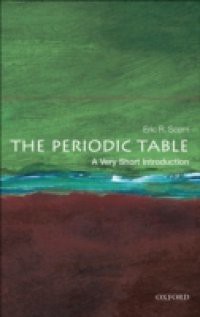Here, Eric Scerri looks at the trends in properties of elements that led to the construction of the periodic table, and how the deeper meaning of its structure gradually became apparent with the development of atomic theory and quantum mechanics, so that, as Scerri puts it, one science, physics, arguably came to colonize another, chemistry, although such a view is resisted by chemists. Scerri shows that quantum mechanics is absolutely central to chemistry, as itunderlies the behaviour of all of the elements and their compounds, and therefore underpins the structure of the periodic table. Concluding with an overview of the huge variety of periodic tables that have been proposed in the print media and on the Internet, he explores the debated question of whether there is an optimal periodic table and what form it might take. ABOUT THE SERIES: The Very Short Introductions series from Oxford University Press contains hundreds of titles in almost every subject area. These pocket-sized books are the perfect way to get ahead in a new subject quickly. Our expert authors combine facts, analysis, perspective, new ideas, and enthusiasm to make interesting and challenging topics highly readable.

